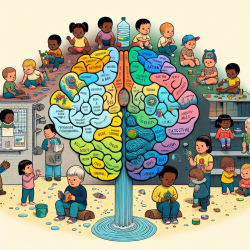Introduction
Effective communication is a cornerstone of patient and family-centered care, particularly in pediatric oncology. Adolescents and young adults (AYAs) with cancer, along with their parents, face unique challenges that require tailored communication strategies from clinicians. A recent study titled "Advice to Clinicians on Communication from Adolescents and Young Adults with Cancer and Parents of Children with Cancer" provides valuable insights into these communication needs.
Key Findings from the Research
The study identified three main themes of communication advice from AYAs and parents:
- Interpersonal Relationships: Clinicians should demonstrate empathy, maintain optimism, empower patients and families, and build genuine connections.
- Providing Information: It's crucial for clinicians to support understanding by using simple terms, pacing information delivery, and ensuring transparency.
- Providing Treatment, Resources, and Medical Care: Offering individualized resources and maintaining competence in treatment are essential.
Practical Implications for Clinicians
Clinicians can enhance their communication skills by focusing on the following strategies:
- Empathy and Connection: Building strong, empathetic relationships with patients and families can alleviate anxiety and foster trust. Simple gestures like a reassuring touch or a kind word can make a significant difference.
- Transparent Information Sharing: AYAs and parents value honesty. Clinicians should be clear and upfront about diagnoses, treatment plans, and prognoses while being sensitive to the emotional state of the family.
- Calm and Optimism: AYAs particularly appreciate clinicians who maintain a calm demeanor and positive attitude, even in challenging situations. This helps reduce anxiety and instills hope.
Encouraging Further Research
While the study provides a robust framework for improving communication, further research is needed to explore the nuances of communication preferences among diverse populations. Clinicians are encouraged to engage in continuous learning and adapt their communication strategies to meet the evolving needs of their patients.
Conclusion
By implementing the communication strategies highlighted in this study, clinicians can significantly improve the care experience for AYAs with cancer and their families. Empathy, transparency, and optimism are key to building trust and fostering positive outcomes.
To read the original research paper, please follow this link: Advice to Clinicians on Communication from Adolescents and Young Adults with Cancer and Parents of Children with Cancer.










